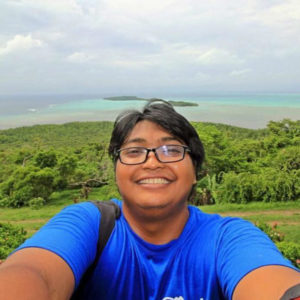
I recently had the chance to talk with Derta Prabuning, Chairperson of Reef Check Indonesia. He explained how Reef Check is operating in Indonesia and some of their best practices. We also discussed his concerns for the coming years.
What Reef Check Is
In 2017, Reef Check International is celebrating 20 years of volunteer effort to monitor, protect, and restore reefs around the world.
With volunteer teams in more than 90 countries and territories, their focus is to empower people to save our reefs and oceans through education, research, and conservation.
Reef Check developed and continues to evolve reef survey protocols and the education of volunteer scuba divers to do reef surveys. The data is uploaded in a database for international studies, and it is shared with local communities, other non-governmental organizations, and national government agencies. Nearly 10,000 surveys have been completed.
Reef Check Indonesia – How It Works
Derta explained that Reef Check Indonesia (RCI), is focused on a triangle of priorities: Education, Community Development, and Science & Technology. Any proposal for new activities needs to fit inside this framework.
They are currently working in 23 provinces across Indonesia. Their large volunteer network includes individual eco-divers, but one of their unique strengths are Reef Check-trained diving clubs. The clubs are often associated with universities, or they are company clubs of employees.
RCI has designed an eco-diver education package for clubs. They also have worked with universities to integrate the eco-diver program and the monitoring methodology into classes.
The training materials for students and teachers have also been translated into Bahasa Indonesian.
The Reef Check methodology for tropical reefs is based on an international standard. Indonesia has a national standard that is the same as the international protocol, plus it is possible to include some species only found in Indonesia. If a local community has specific concerns about their marine protected area, they can request to add target species to the surveys in their zone.
A Few Questions for Derta
Kim: Your work with local communities has expanded a lot in the past few years. How does it work?
Derta: Normally, a local community or a company in the area will contact us. Often, they would like us to survey an area close to their community. They need a friend to work together for better reefs.
Based on lessons learned in previous years, since 2005, we no longer give direct financial support to the network. Instead, we help them to get organized, put systems in place to raise money, and to plan regularly monitoring.
Kim: If a community wants to create a new marine protected area (MPA), how does it work?
Derta: At the start, we work with them to understand why they want a survey, the purpose, and then decide the areas to be surveyed. We will ask our volunteer network for a group of people to do the survey work. A club could do this, for example.
The local community provides homestays and food for the volunteers. Often a local company or business will provide transportation. It is resource sharing with positive benefits.
The dive equipment is sometimes borrowed for free from local dive shops, and they also provide air for no cost. Sometimes a local community will get a small government grant, and they can use part of it to buy equipment, pay for fuel for the boats, etc.
After the surveys are done, we analyze the data to make the selection of the best area to protect. And this is not the only outcome we get. We also get stakeholder buy-in because the stakeholders are involved from the beginning of program.
Kim: How else are you working with the dive community?
Many of the Reef Check trainers are owners or managers of dive centers. Some do regular surveys in the areas around their centers. A couple of dive centers have started to integrate the eco-diver training program into their Dive Master training. It is a trend we want to encourage.
Kim: Do you use social media as part of your strategy?
Facebook and WhatsApp are very popular now in Indonesia. In the RCI network, fishermen can post a request on Facebook for volunteers to monitor their local reef, and students can contact communities to find opportunities for fieldwork for their master degree or thesis work. They do not need to go through our office. It is effective, and it makes our lives easier.
Kim: As Director, how to you spend your time?
Derta: In addition to managing the team and maintaining stakeholder relationships, I try to participate in at least 1 monitoring activity each month. I support the Reef Check trainers to get education materials, process the diver certifications, print I.D. cards, etc. The team does a great job with the community collaboration so I spend maybe 5 – 10% of my time to support their work. Looking for money – writing grant proposals and visiting companies – is important. I spend about 2 days a week on this.
Kim: What are your biggest concerns for the next 3 years?
Derta: I would have to say –
1) Climate change – the changes and impacts are coming too hard and too fast;
2) Maintaining the right spirit of “idealism” in Reef Check Indonesia- staying focused on data and quality;
3) The same as every year – looking for all of the pieces of puzzle, including funding, to maintain existing programs and start new projects.
Treating everyone with the same level of respect is important for me and for the rest of the RCI team. That is a quality we need to preserve.
